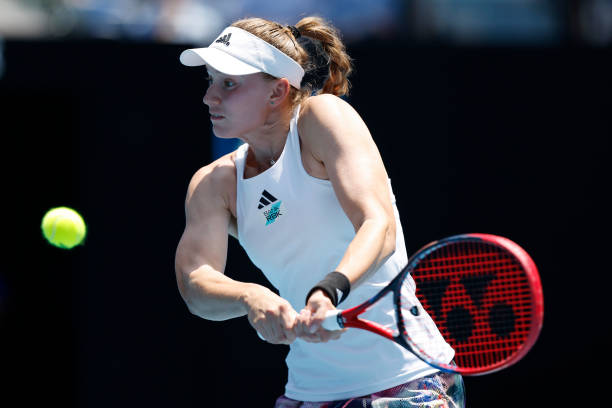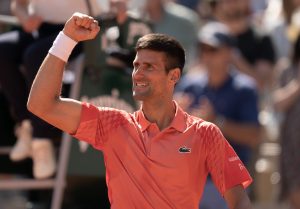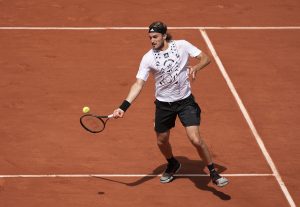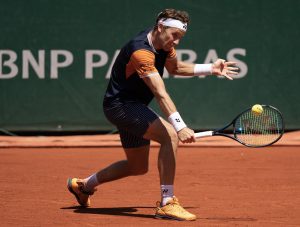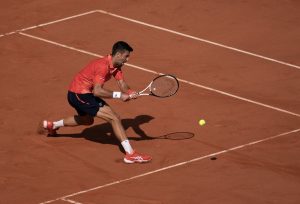When Elena Rybakina won the 2022 edition of Wimbledon, she was flying under the radar until the tournament’s latter stages. The Kazakh was seeded 17th and had never been past the quarterfinal stage of a Grand Slam event. Her game was perfect for the conditions though and she played a near-flawless fortnight to make sure that her name goes down in history. But did it? Why was Rybakina, one of just two active reigning Slam champions, approaching a match against the other recent winner of such an event as a huge underdog? Why does it seem like winning Wimbledon hasn’t changed anything in the way most tennis fans perceive the 23-year-old?
Let’s begin with the obvious – Rybakina wasn’t granted ranking points for her Wimbledon title. This came as a result of the All England Lawn Tennis Club announcing that they will be declining entries from Russian and Belarussian players due to the ongoing invasion of Ukraine. The reaction from the tennis’ governing bodies was to make the event a bonafide exhibition, which didn’t stop pretty much all top players from coming due to the prize money at stake and the splendor of what is perhaps the sport’s most prestigious event.
Rybakina winning the tournament was a huge story also for political reasons. While she represents Kazakhstan, she is Russian-born after all. This conflict of interest between Wimbledon excluding two nations from the list of participants and still having a player from one of them winning the event was clear, but it wasn’t something that concerned the 23-year-old. She won the title fair and square, blasting her way through the field at the loss of just two sets.
Nightmare draws, unseeded at most events
To put things into perspective – 2000 points for winning a Grand Slam tournament instantly propels you to the top 20 most of the time, even if that would be the only event you had played all year. Rybakina, in the edition of the WTA Rankings published on the 1st Monday of the Australian Open, sat at World No. 25 with 1585 points. Therefore, adding her Wimbledon scalp to the mix would double her tally and then some.
With Rybakina’s maiden Grand Slam title gaining the kind of traction that it did, it seemed impossible that the Kazakh would soon be treated as just another second-tier contender. After all, she won it against almost all the other top players in the world, only avoiding a few dangerous competitors from Russia and Belarus. But as we soon realized, the impact of not having these 2000 points on her ranking turned out to be much more multi-layered than we thought.
Your position in the rankings is used to determine the seedings for tournament draws. With about 3500 points, Rybakina would have been guaranteed a seed at any event she could have played. Since the 2022 Wimbledon, the 23-year-old had to face some extremely tough opponents in basically half of her opening-round matches. All of these would have been avoided, if it wasn’t for the fact that Rybakina has been seeded at merely 4 of her 11 tournaments played since Wimbledon. How did that influence her? Since winning her 1st Grand Slam title, Rybakina has battled players like then World No. 12 Daria Kasatkina, No. 14 Danielle Collins, No. 16 Petra Kvitova, or No. 17 Madison Keys in her opening match of a tournament!
In theory, this has less of an impact at the Slams, which feature a total of 32 seeded competitors, who are guaranteed to avoid one another until the third round. But your seeding range (for example, whether you’re among the top 8 players or in the 17-24 zone) also determines at which point of the event you’re going to have to meet the other high-ranked participants. That’s why Rybakina had to take on Swiatek in the fourth round already, whereas with 2000 points more she’d be guaranteed to avoid her for at least one more match. If the seeds held up at the US Open, the Kazakh would have played World No. 6 Aryna Sabalenka as early as round three!
Less exposition
Perhaps even more strikingly, Rybakina missed the WTA Finals as a result of not getting 2000 points assigned to her ranking. The year-end championship is a special event for just eight players who amassed the best results over the course of a season. Usually, the number of points gained from winning a Grand Slam tournament gets you there anyway (along with some other efforts, it’s not going to be enough by itself).
On the men’s side, there is a backdoor entrance designed to help one champion of a Slam from that year get in, but only if he’s inside the 8-20 range in the ATP Race ranking. For a while, it looked like that’s how eventual champion Novak Djokovic was going to enter the event, but he eventually amassed enough points to enter the ATP Finals directly. Had she gotten the points for Wimbledon, Rybakina would have entered the WTA Finals at No. 4 in the WTA Race.
An event like that can often be crucial for a player to gain media exposition and be more recognized among the general public. The organizers of the other Slams also weren’t doing Rybakina any favors with the scheduling, hardly treating her as one of the few Grand Slam champions in the draw (and a reigning one at that!). Her first Major post-Wimbledon was the US Open, where her loss to Clara Burel happened on Court No. 12. To be fair, it is one of the biggest outside courts at 1,704 seats, which is still nothing compared to the 23,771 possible viewers on Arthur Ashe Stadium, 14,061 on Louis Armstrong Stadium, or 8,125 on Grandstand.
At the Australian Open, before the Swiatek match, Rybakina also wasn’t really considered prime-time viewing. Her first match against Elisabetta Cocciaretto took place on Court 13 with the only other seed on that court (on Monday) being US Open semifinalist Karen Khachanov. She did get the third-biggest venue, John Cain Arena, for her second round against Kaja Juvan. The encounter between her and Danielle Collins, last year’s runner-up, was featured on the Kia Arena as one of just four singles clashes not to be assigned one of the three main courts. These selections aren’t necessarily wrong, they’re just more of a demonstration of how Rybakina’s Wimbledon championship didn’t change her status in the sport all that much.
Most importantly, the tennis
Once again, the courts at a Grand Slam event are absolutely perfect for Rybakina. Her serve is among the best on tour and even against one of the best returners in the game like Swiatek, she was able to win a staggering 80% first serve points (24/30). It is said that the new Dunlop balls for the Australian Open favor flat-hitters and a player like the Kazakh can take full advantage of that. While her movement is just average and can often be exploited if she’s forced to be on the back foot, she makes sure not to allow her opponents the chance with the excellent mix of terrifying power and precise timing on her groundstrokes.
Should Rybakina beating Swiatek be considered a huge upset? Absolutely not and this is another way in which the rankings have influenced the public’s perception of the 23-year-old. The World No. 1’s one major flaw in her game is the serve, which is most evident when she’s playing someone who serves big and can apply pressure instantly off the return. Since Caroline Garcia pulverized Swiatek’s delivery in Warsaw last year, we’ve seen more and more players take on that tactic. Most recently, it was Jessica Pegula at the United Cup. Rybakina probably has the second-best skillset to trouble Swiatek on the WTA Tour, just behind Garcia who can net rush and take time away more efficiently.
One could say that the impact of Rybakina not having these 2000 points will be over in July, which is when she’d have dropped them. But that’s obviously not the case as there’s no telling what the Kazakh would have done if she had landed better draws, seedings, played the WTA Finals. Of course, there’s also no guarantee that she would have even achieved better results than she has had since. Although it is a pretty fair assumption, we’ll just never know. But anyway, it’s time to start giving Rybakina some more respect she deserves. She’s a serious contender for the Australian Open and for most events she plays, especially on very fast courts. Let’s start treating her as such.
Main Photo:


